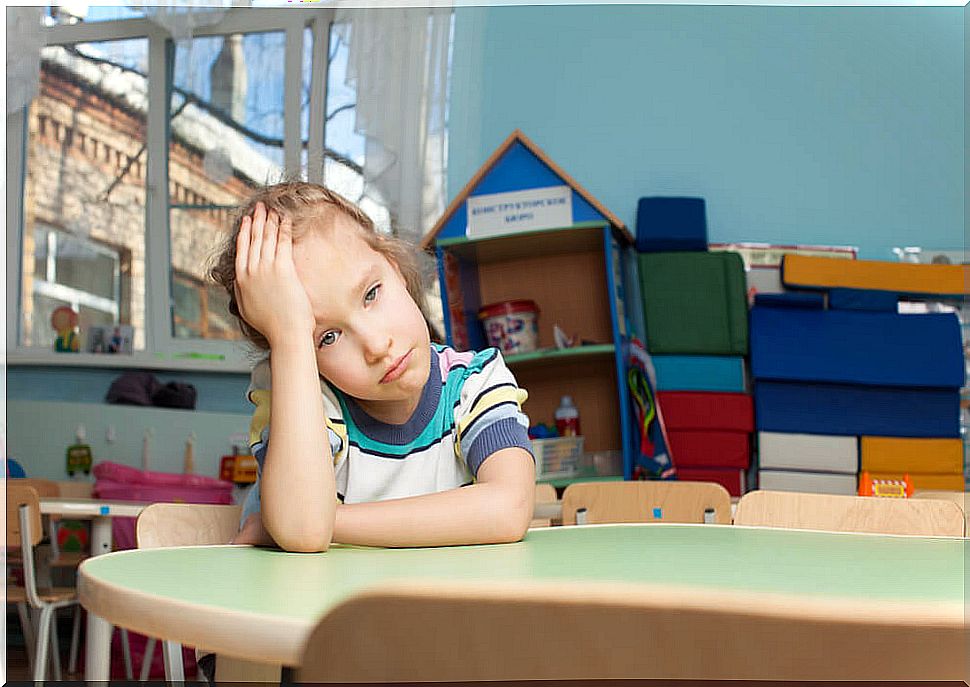Lies In Children: What To Do If A Child Lies
Lies told by children are a concern for parents because they do not know what to do if a child lies. In addition, the corrective measures to be used against this behavior are not an easy task. However, you should not be alarmed, since in children up to 5 years it is normal to tell lies. Generally, they do it for different reasons and the main one is because they are not yet aware that they are not telling the truth.
On the other hand, at those ages, it is very difficult for children to differentiate all aspects of reality, as they sometimes confuse it with fiction, with a dream or with a false memory induced by others.
The maturation of the nervous system is still in process, therefore, its structures must be developed and the necessary nerve connections must be established. It is a long process, but the advantage is that in this phase the children absorb a great deal of knowledge.
You should start to worry if, after the child turns 5, he continues to tell falsehoods. From that moment, as a parent, you have to implement strategies so that the little one begins to differentiate the truth from the lie.
Age at which children lie
Children, before the age of 3, say things that are true for them. On the contrary, for adults, who do not understand them, that fantasy world is nothing more than a set of lies.
Children who are between 3 and 5 years old are still not aware that what they express on many occasions is not true. This behavior is part of their games and fantasy, so it should not be given too much importance.
Furthermore, as this work carried out by researchers from the International University of La Rioja shows, Piaget points out that deception and lies are part of child development. However, you have to be aware of whether it is part of your normal behavior and whether you use it to achieve your goals.
After 5 years, they already begin to have a conscience and can differentiate between the truth and the lie. However, although the little ones are maturing this behavior, they do not know the consequences that it implies.
Causes why a child can lie
Among the most common reasons for children to be untrue, as this publication of the APdeBA Magazine points out , the following can be found:
- Get something they want or avoid something they don’t want.
- Fear of punishment.
- Need to appear to be like others or better.
- Imitation of other people who lie.
- Maintain stability in your comfortable environment.
- Need to be accepted and loved.
- Difficulty assuming reality.
What to do if a child lies
Once the cause that causes the child not to tell the truth has been determined, some strategy must be used to mitigate this behavior until it is eliminated. Here are some tips to help you keep in mind what to do if a child lies.
Teach by example
Parents are the example children follow. And so this study published in Teaching and Research in Psychology points out. Therefore, you are urged to become aware of the importance of educating your children to value sincerity. Also, lies should not be used as a resource to evade responsibilities.
Unquestionably, the action of parents is fundamental in such teachings. Adults often make falsehoods thinking they are harmless. However, there are possibilities that children, when observing this behavior on the part of adults, copy this model.
Effective communication
Constant and clear communication with children is important. For this reason, you should explain to your child the difference between the truth and the lie, mainly at an early age. You also have to keep in mind that omitting information is also part of lying.
When you are talking to him, create a safe environment so that he can tell you his concerns with confidence, tranquility and without fear. Finally, you can end the conversation by saying encouraging phrases like, “It makes me happy when you tell the truth . “
Acknowledge the truth
Parents should recognize the effort that the child makes to tell the truth. We cannot forget that, in many cases, it can lead to punishment for what it has done.
Therefore, it is important to congratulate him, but make it clear that the behavior he manifested is not correct and that he has to comply with the sanction. However, it must be emphasized that this does not affect the love you feel for him.
Avoid penalties

Avoid punishing children when they are insincere. It is better to reward when you tell the truth. In this way, you will achieve that, little by little, they understand that it is not an appropriate behavior and they will learn the value of honesty. Although, on many occasions you are ashamed, first of all you have to be patient.
About what to do if a child lies
Finally, those responsible for raising honest children and who value speaking the truth are the parents. To ensure that the little ones do not lie, as a parent, you must talk with them and determine the cause.
On the other hand, there is no justification for adults to lie to children, even if it is to protect them and not make them suffer. It is best to try to convey the information assertively, but never mislead them.
Also, punishment is not the best option when a child lies. However, you must proudly acknowledge when he admits his guilt. That behavior is worthy of admiration. However, if you have put these suggestions into practice and they have not been effective, the support of a specialist is recommended to correct the behavior.








